blog»Business Strategy»How Farfetch Dominated the Luxury E-commerce Scene: A Relatable Deep Dive
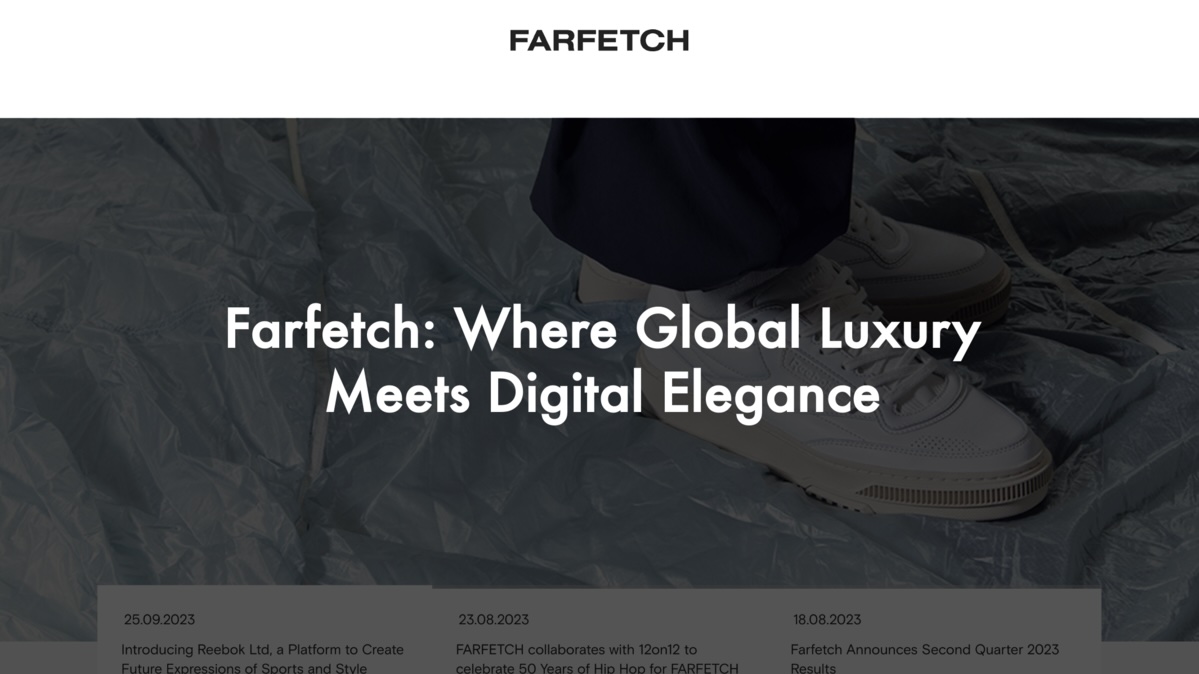
How Farfetch Dominated the Luxury E-commerce Scene: A Relatable Deep Dive
2023/10/16
You can read this article in about 17 minutes
Introduction
“Hey, gentlemen! Ever stumbled upon a brand and wondered, ‘How have I not heard of this before?’ Well, you might feel that way about Farfetch. But whether you’re a luxury fashion aficionado or just starting to explore upscale brands, Farfetch is a name you’ll want to remember. Think of it as the ultimate junction where high-end fashion boutiques from around the globe converge on one digital platform. And it’s not just for the ladies; there’s a vast collection tailored to men’s fashion as well. Ready for a deep dive? Let’s unravel the story behind this luxury e-commerce giant.”
Origin Story: From Start-Up to Global Sensation
Remember when online shopping was just budding? Amidst that evolution, José Neves struck gold in 2008. He thought, “Why not have a digital playground where every luxury boutique from Tokyo to Paris showcases their stellar pieces?” And just like that, Farfetch was born. What began as a visionary concept soon transformed into a global sensation, turning the luxury shopping paradigm on its head.
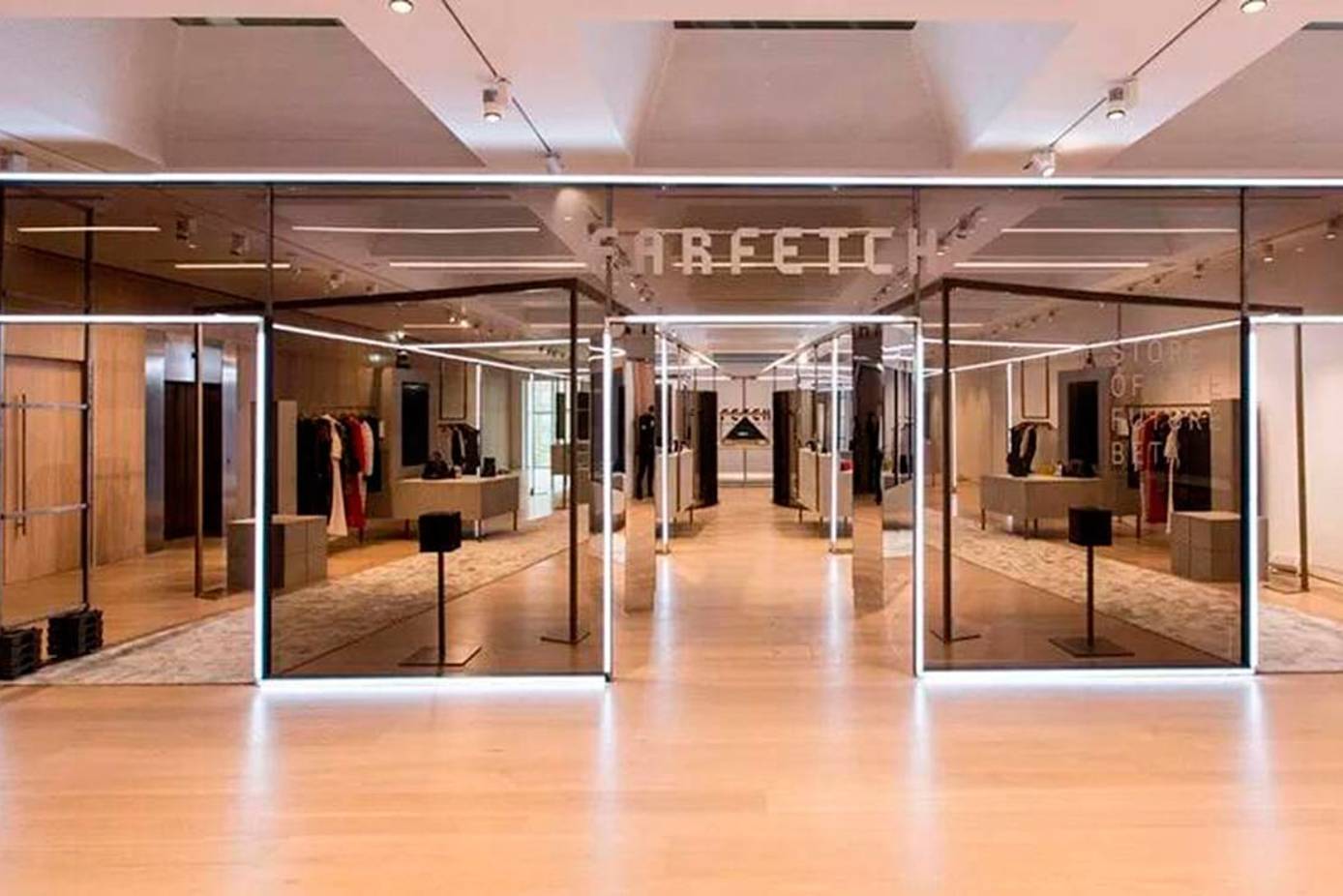
The Bold Disruption: Making Luxury Click
Historically, luxury shopping was an experience: the ambiance of upscale boutiques, the feel of high-quality fabrics, and the personal touch of shop attendants. But Farfetch saw an opportunity amid this traditional setting. They realized that while the tangible allure of luxury was vital, the modern consumer also valued ease and convenience.
Farfetch took on the challenge of replicating the trustworthiness and reliability of a physical luxury store, but online. They merged the tactile appeal of luxury items with the undeniable convenience of online shopping. By offering detailed product descriptions, high-quality imagery, virtual try-ons, and a seamless return policy, they instilled trust and confidence in their clientele. The ‘Click and Collect’ feature and their rigorous vetting process for partner boutiques further ensured authenticity, bridging the gap between in-store and digital experiences.
Over the years, through their unwavering commitment to quality and authenticity, Farfetch meticulously built trust. Customers began to appreciate that shopping on Farfetch wasn’t just about authenticity; it was also about unparalleled convenience. No travel, no waiting in lines, no adherence to store hours—just pure luxury shopping at your fingertips anytime, anywhere. This dedication played a pivotal role in shifting consumer behavior, making online luxury shopping not just an alternative, but often the go-to choice for many.
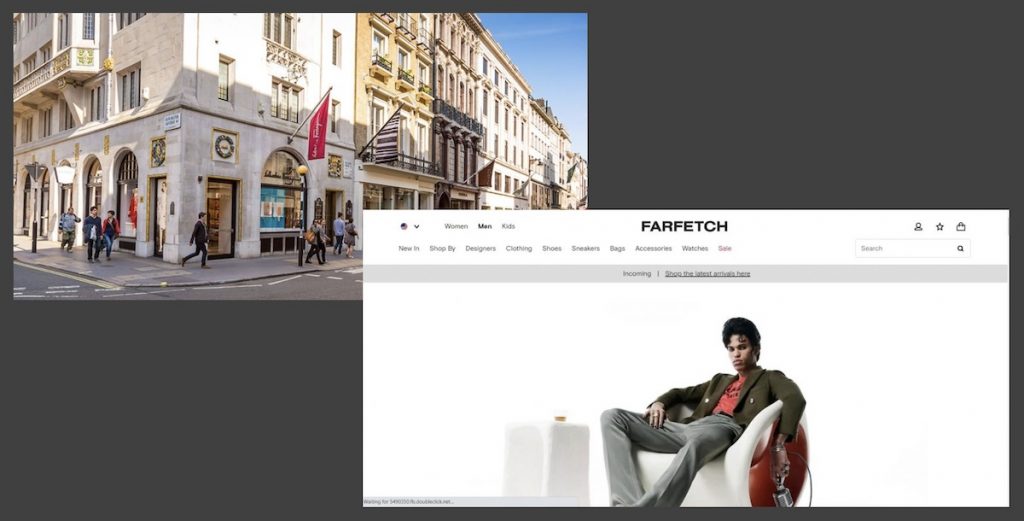
Redefining the Business Playbook: No Stock, No Problem!
One might wonder, “How did Farfetch amass partnerships with over 700 boutiques without holding any stock?” It wasn’t just by chance. Farfetch’s strategy was underpinned by understanding the challenges faced by luxury boutiques in the digital age. Many of these boutiques, while offering exclusive and high-end products, didn’t have a strong online presence or the resources to individually compete in the global e-commerce market.
Farfetch stepped in as a solution. They offered these boutiques a chance to showcase their collections on a global platform, handling the complexities of international e-commerce—from logistics and customer service to digital marketing. This proposition was hard to refuse for many boutiques that wished to expand their reach without the headache of managing their own online infrastructure.
Furthermore, Farfetch’s reputation for maintaining the essence of luxury shopping, combined with their rigorous vetting process, assured boutiques of the platform’s credibility and premium clientele. The company’s commitment to boutique partners went beyond just listing their products; they provided tools, insights, and support to ensure mutual growth.
Was it just about the platform’s appeal? Not entirely. Farfetch also actively pursued partnerships, curating a diverse range of brands and styles. This proactive approach, coupled with the undeniable value they offered, magnetized boutiques to join the platform. Over time, a snowball effect occurred: as more boutiques joined, Farfetch’s assortment grew richer, drawing even more boutiques and consumers into its ecosystem.
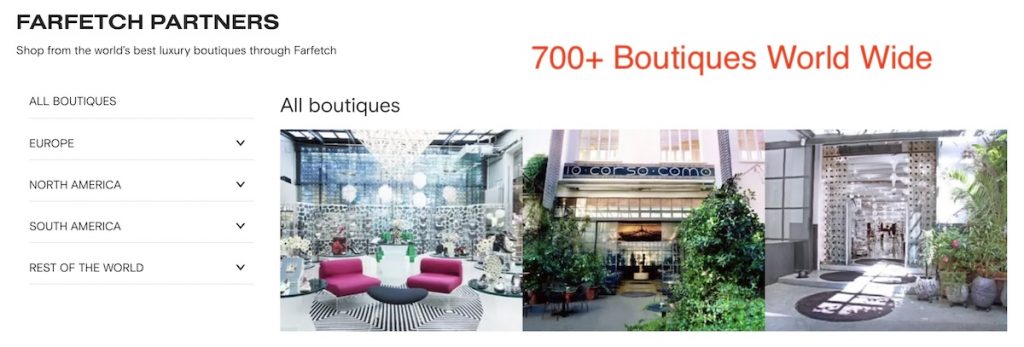
User Experience = King: More Than Just Clicks
Farfetch didn’t just aim to create another online shopping portal; they set out to curate an entire luxury shopping experience. And in this digital age, the devil is in the details. Here’s how they’ve stood out from the crowd:
- High-Resolution Imagery & Virtual Try-Ons: While many platforms offer product photos, Farfetch took it up a notch with ultra-high-resolution images that allowed users to zoom in and see intricate details. For certain products, they even introduced virtual try-ons, giving users a realistic idea of how items might look on them, bridging the gap between online and offline shopping experiences.
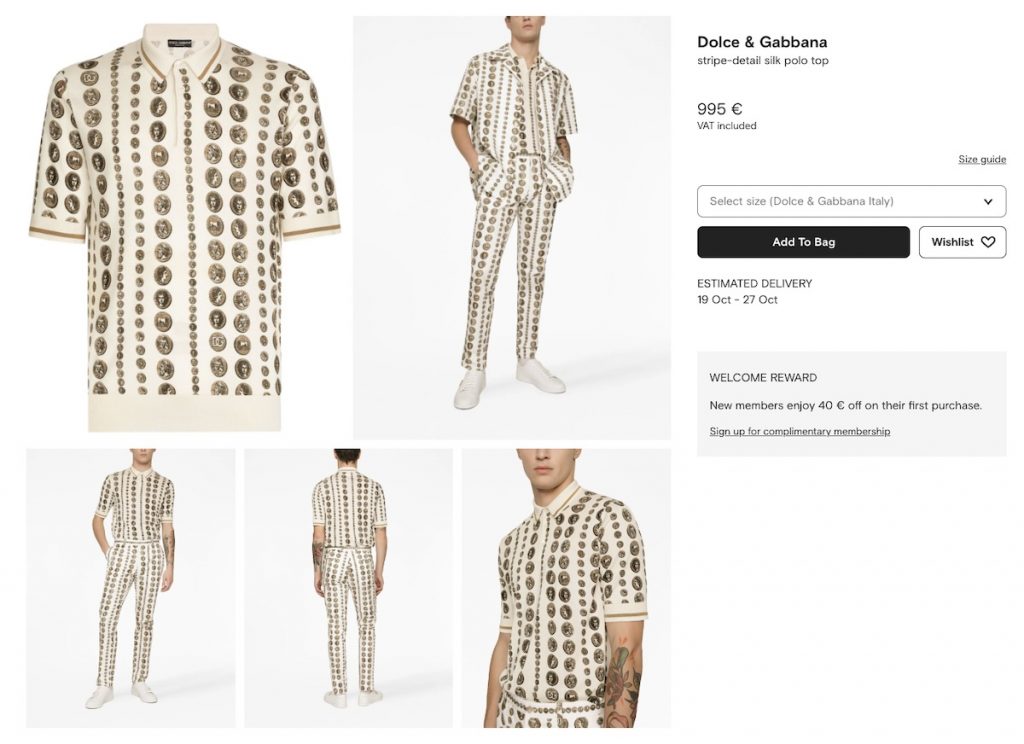
- Intuitive Search & Personalized Recommendations: While many sites can sometimes feel overwhelming with the sheer volume of products, Farfetch’s intuitive search and filtering capabilities made it a breeze to find exactly what you were looking for. Plus, their AI-driven recommendations meant users were often presented with items tailored to their tastes and previous browsing history.
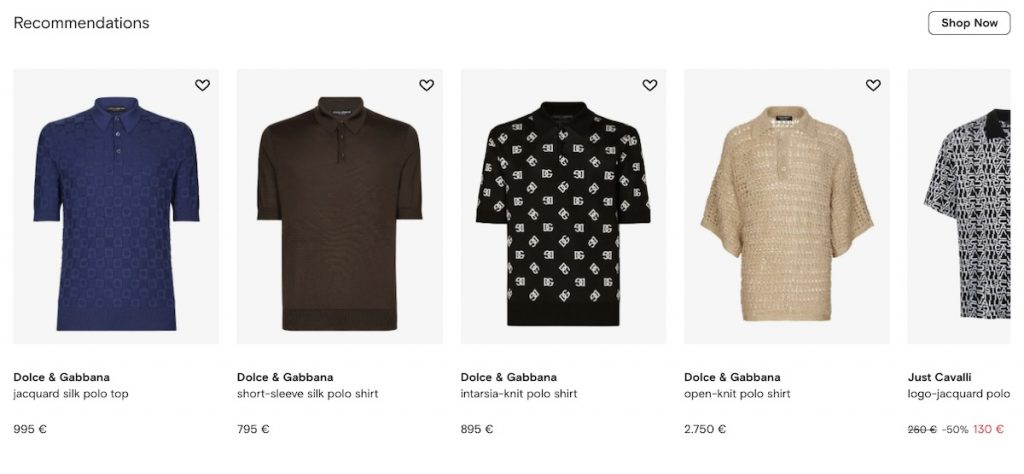
- Seamless Multi-Boutique Checkout: Unlike other platforms where buying products from multiple sellers can be a hassle, Farfetch introduced a seamless checkout process. This meant users could purchase items from multiple boutiques worldwide in a single transaction.
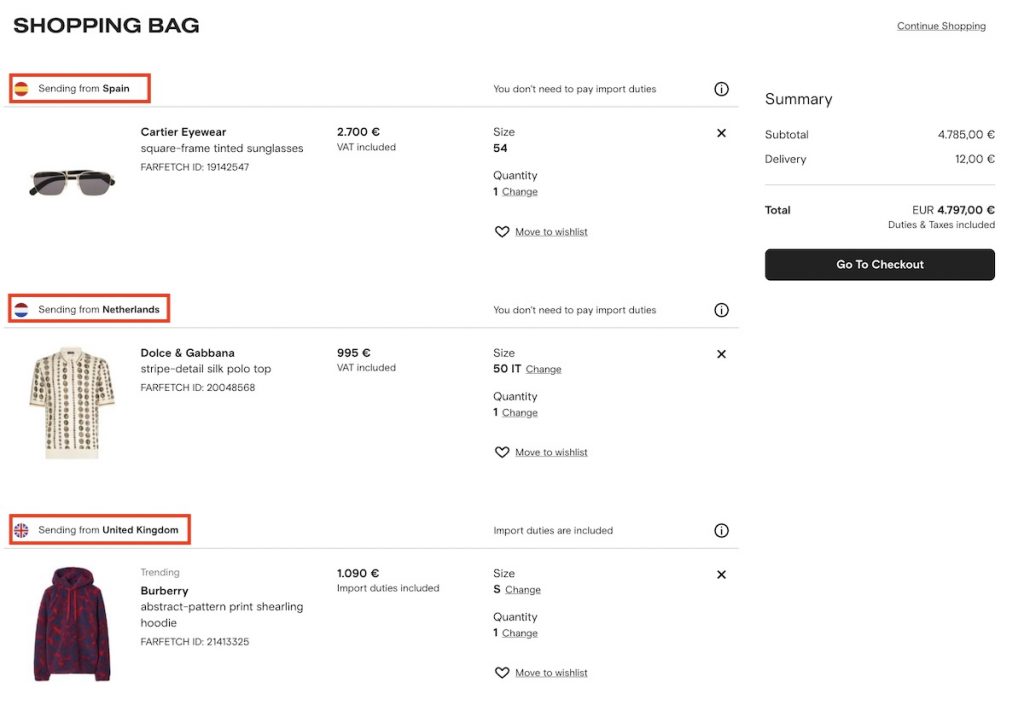
- Engaging Content Integration: Beyond just shopping, Farfetch integrated rich editorial content within their platform. From style guides to designer interviews, they provided users with engaging fashion insights, elevating the browsing experience to something more akin to flipping through a luxury fashion magazine.
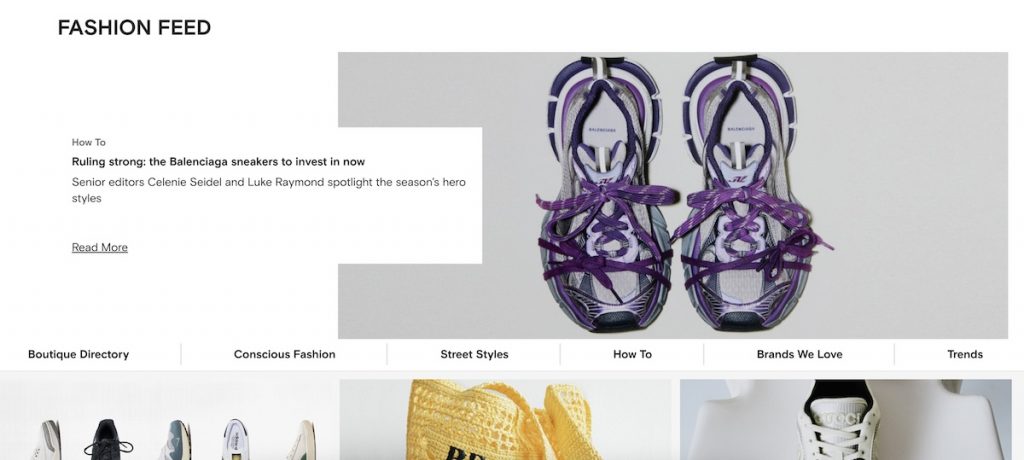
In an ocean of e-commerce sites, Farfetch’s dedication to refining every facet of the user experience ensured they weren’t just another fish in the sea, but a distinct and memorable whale!
Digital Marketing Gold: Tips from the Farfetch Playbook
Farfetch’s success isn’t serendipitous; it’s a masterclass in digital marketing. Here’s a deeper dive into some of their standout strategies:
- Campaigns That Resonate: Farfetch has a knack for creating campaigns that connect on a personal level. Take their “Unfollow” campaign, for instance. Instead of merely promoting products, it celebrated the essence of individual style. Using vivid visuals and catchy taglines, Farfetch urged users to ‘unfollow’ trends and define their own fashion narratives. This approach resonated, encouraging fashionistas to look beyond popular norms and showcase their unique sartorial sense.
- A/B Testing Wonders: Farfetch’s meticulous approach to refining the user experience is nothing short of commendable. They’ve run A/B tests on multiple elements of their platform. One standout experiment involved tweaking the product page layout—comparing the performance of “Add to Cart” button colors, such as classic black against a vibrant gold, and assessing the impact of relocating product descriptions, whether above or below product images. Each alteration was closely monitored to determine which version encouraged more user engagement and conversions.
- SEO Magic: The world of SEO is vast, but Farfetch navigates it with precision. They optimize for high-impact keywords tailored to their luxury audience. Phrases like “luxury fashion online”, “designer brand collections”, and specific brand-focused keywords such as “Gucci sneakers” or “Saint Laurent bags” are peppered throughout their site. By targeting these keywords, Farfetch ensures they’re the top destination for luxury fashion enthusiasts searching for the latest in high-end wear.
- Engaging Email Marketing: Beyond the realm of site optimization and campaigns, Farfetch’s email strategy is a paragon of personalized marketing. Their “Back in Stock” notifications stand out in particular. If a user showed interest in an item that was sold out, Farfetch wouldn’t forget. They’d send a tailored email alerting the eager shopper once their coveted item was available again. This strategic nudge often translated to a sale, proving the efficacy of personalized touch in email marketing.
Farfetch’s digital marketing isn’t about riding the latest trend; it’s about understanding their audience’s pulse, tapping into their desires, and delivering value at every digital touchpoint.

Farfetch’s Golden Nuggets for Other Businesses
Alright, time for some juicy takeaways!
- Spot Your Niche: Farfetch saw a gap and filled it. They brought the world’s luxury boutiques under one digital roof.
- Blend the Worlds: Omnichannel Mastery: Farfetch didn’t just stop at online; they seamlessly connected the digital realm with physical boutiques. So, imagine this: you’re chilling in New York, sipping your latte, and through Farfetch’s stellar omnichannel experience, you’re shopping at a quaint boutique in Paris. It’s like teleporting your shopping senses across the globe.
- Re-think Your Model: Who said you need to stock stuff to sell stuff? Farfetch’s model proves otherwise.
- Make It a Treat: Shopping on Farfetch is pure joy. Every click, every page, it’s all designed for delight.
- Team Up Smartly: From high-end brands to strategic tech partners, Farfetch knows the power of good company.
Wrapping Up
Farfetch isn’t just another e-commerce platform. It’s a lesson in innovation, strategy, and, above all, understanding what the customer craves. And if there’s one thing other businesses can learn, it’s this: With the right vision and a sprinkle of boldness, you can redefine an entire industry.
So next time you’re window shopping on Farfetch, remember: behind that chic dress or those snazzy shoes is a story of ambition, innovation, and some seriously smart moves!